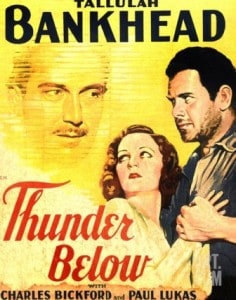Even after over seven years of existence there are more than a few genres and stars we’ve rarely if ever touched upon. One of those is Tallulah Bankhead, who is sadly probably best known today for her appearance in Hitchcock’s Lifeboat and to a much lesser extent for her outspoken sexual attitudes and risqué exhibitions.
A native of Huntsville, Alabama, Bankhead became a precocious but perhaps perpetually unfulfilled star. She flitted between Broadway and Hollywood, with most of her successes being in the former. Though almost always active, towards the end of her career Bankhead found most of her job in the then blossoming television industry.
But back in the early 1930s things were much different for her, and Paramount tried hard to make her a star in their version of Greta Garbo. Among these early Paramount pictures was 1932’s Thunder Below, a short and compact vehicle starring her in the lead with support from Charles Bickford and Paul Lukas. Eugene Pallette is notable as well in a supporting role.
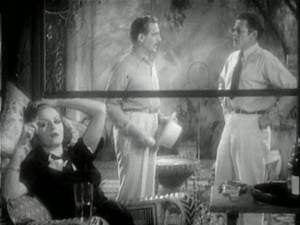 Thunder Below is yet another twist on the classic love triangle. Opening with an extremely brief shot of a map of the Americas, we are left to assume that this saga takes place in Central or perhaps South America. Bankhead is Susan, the wife of local oil executive Walt (portrayed by Charles Bickford). Walt is in the field (presumably looking for oil) with his assistant and friend Ken (Paul Lukas).
Thunder Below is yet another twist on the classic love triangle. Opening with an extremely brief shot of a map of the Americas, we are left to assume that this saga takes place in Central or perhaps South America. Bankhead is Susan, the wife of local oil executive Walt (portrayed by Charles Bickford). Walt is in the field (presumably looking for oil) with his assistant and friend Ken (Paul Lukas).
They return earlier than expected to the small town which is the base of operations. Walt rushes first to Susan’s side, with all the stench and grime of the jungle still upon him. Ken pauses to clean up and change clothes before heading over to see her. This is the first tell of what is confirmed in relatively short order: Ken and Susan have been having an affair, which perhaps isn’t that surprising given the humidity and constant boredom of the jungle.
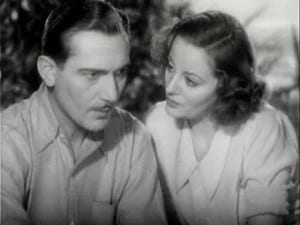 As Susan and Ken pair off they decide that they must tell Walt of their deception, but before they can do so they learn from Walt that in fact he is going blind. His concern over his condition- demonstrated by several rather obvious stumbles over tree branches and cobblestones- was the cause of the groups early return.
As Susan and Ken pair off they decide that they must tell Walt of their deception, but before they can do so they learn from Walt that in fact he is going blind. His concern over his condition- demonstrated by several rather obvious stumbles over tree branches and cobblestones- was the cause of the groups early return.
As Walt’s vision fades, Ken increasingly becomes his eyes and his relationship with Susan becomes all the more tortured and painful for the two lovers. Finally the dam breaks when Davis, a representative of a competing oil concern, arrives and begins a path of rampant flirtation (with more hinted at) with the receptive Susan.
Walt confronts Susan and Davis in a tavern, with perhaps unintentionally humorous results. As he reads Susan and her new potential beaux the riot act, the couple quietly rise and leave, with Walt none the wiser. Only after a few more sentences does Ken finally stop Walt, but not before the damage is done. Susan is on the run with Davis.
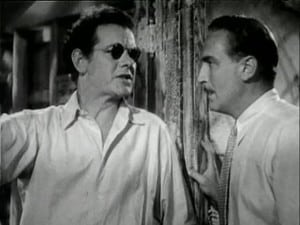 With Walt following close behind, Ken catches up with Susan on the coast, having just told Davis to go ahead without her. She and Ken again decide to tell Walt of their relationship, but as Walt climbs the stairs Ken again backs down to avoid causing pain to his friend. Presented with the options of returning to the base town and continuing the odd love triangle or chasing after the soon to depart Davis, Susan chooses a third option.
With Walt following close behind, Ken catches up with Susan on the coast, having just told Davis to go ahead without her. She and Ken again decide to tell Walt of their relationship, but as Walt climbs the stairs Ken again backs down to avoid causing pain to his friend. Presented with the options of returning to the base town and continuing the odd love triangle or chasing after the soon to depart Davis, Susan chooses a third option.
As Ken and Walt head back, she flings herself off an oceanfront cliff to her death. As her body smacks into the rocks below, the only response from the now completely blind Walt is, “My, something must have startled the seagulls.”
It is hard not to realize the potential that Thunder Below has. Though at the core it is nothing more than the classic love triangle, the setting and casting give quite a bit of juice to the viewer. Bickford is at the height of his fame and Bankhead saunters adroitly between cocktails, cigarettes, sheer dresses, and her men. That said, somehow the entire ordeal lacks more than skin deep appeal.
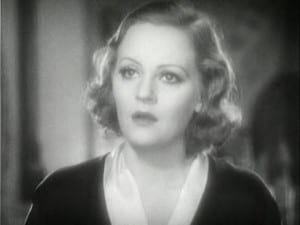 Perhaps the true hurdle of Thunder Below which it fails to overcome is the pacing and tone of the picture. Though only running slightly over an hour, the proceedings are lacking in so much of the tension which should in all reality be there. Walt gets his dander up only at Davis’ passing flirtations, all the while being completely oblivious of Susan’s deep feelings and long lasting dalliances with Ken. No pun intended, but even a blind man can hear the crackle of their relationship in their exchanges.
Perhaps the true hurdle of Thunder Below which it fails to overcome is the pacing and tone of the picture. Though only running slightly over an hour, the proceedings are lacking in so much of the tension which should in all reality be there. Walt gets his dander up only at Davis’ passing flirtations, all the while being completely oblivious of Susan’s deep feelings and long lasting dalliances with Ken. No pun intended, but even a blind man can hear the crackle of their relationship in their exchanges.
Bankhead oozes her role, almost exuding her various sins throughout in this pre-code saga. Her voice is thick from both cigarettes and her cocktails, and perhaps she is so effective because it is clearly a role little removed from her own reality. As she herself professed many times, the only reasons for her to be in Hollywood were for the money and the sex, and her best roles are those which lean heavily on those proclivities. It is clear from her constant distant stares when in conversation with Lucas that though she loves him, it is only for the moment and her true love is for the idea of him. For those reasons alone, it is hard to say that she is not well cast in Thunder Below.
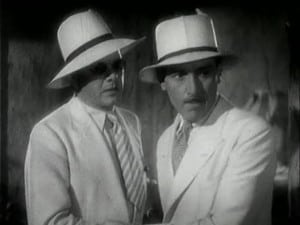 Then there is Paul Lukas himself, who seems unduly stiff and constrained against Bankhead’s sultry suggestions. With his thick accent and overly conservative personality, it is hard to find what a woman of Susan’s obviously liberal perspectives would find so appealing. After a bit more scrutiny, it is safe to say that the love triangle really becomes three discrete and lonely dots in the universe.
Then there is Paul Lukas himself, who seems unduly stiff and constrained against Bankhead’s sultry suggestions. With his thick accent and overly conservative personality, it is hard to find what a woman of Susan’s obviously liberal perspectives would find so appealing. After a bit more scrutiny, it is safe to say that the love triangle really becomes three discrete and lonely dots in the universe.
Of last note is the work here of Eugene Pallette, still the best Friar Tuck ever made. Here he is in an underdeveloped and underutilized role as Horner, one of the oil crew’s staff in town. Though it is never really explained, it is presumed that he is more on the analytical side of the business, though his real role in the picture is more as one of comic drunken relief. His most significant scene is a throwaway one set in a local tavern where he plays an odd spanking game with one of his fellow female customers.
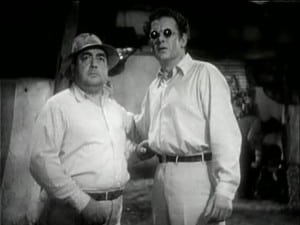 Thunder Below isn’t a film that is easily found, and for most sadly isn’t worth the effort in finding. Though not a truly bad picture, so many finer films are so readily available that it is hard to recommend chasing this one much. Given Tallulah Bankhead’s fairly limited number of films it is of most interest to her fans as it is in her case a great slice of what could have been.
Thunder Below isn’t a film that is easily found, and for most sadly isn’t worth the effort in finding. Though not a truly bad picture, so many finer films are so readily available that it is hard to recommend chasing this one much. Given Tallulah Bankhead’s fairly limited number of films it is of most interest to her fans as it is in her case a great slice of what could have been.
